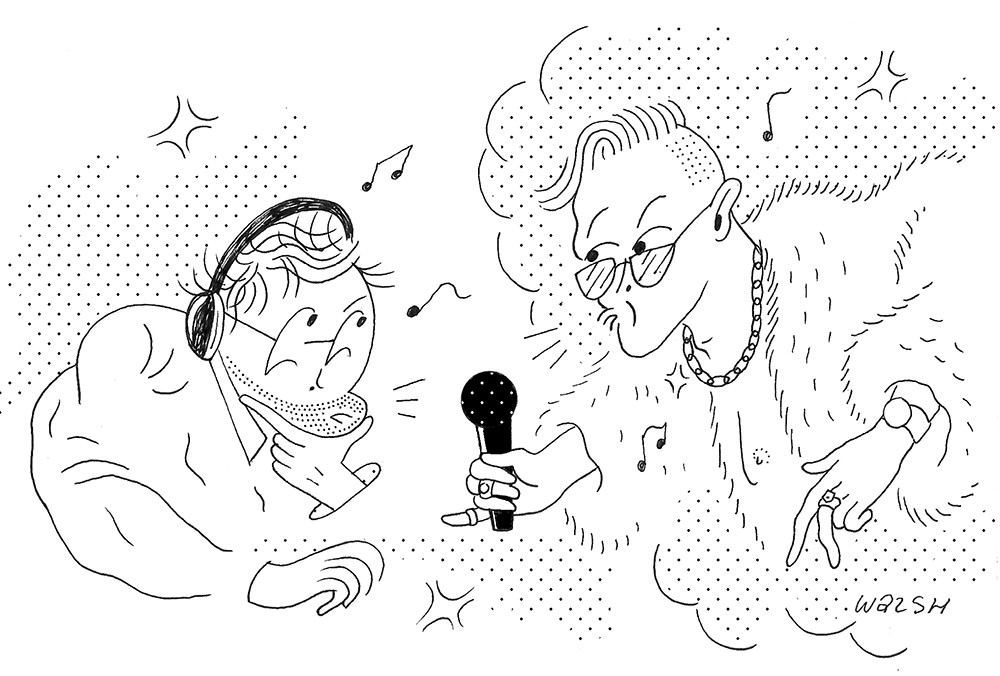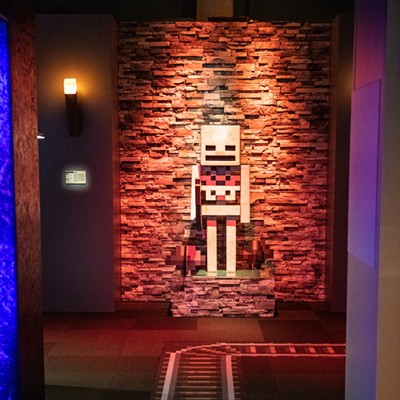I have loved Macklemore and Ryan Lewis from the moment I heard "Thrift Shop." The song felt like a celebration of my self-identity. I still have a plaid coat with a faux-fur green collar that I bought in high school from Goodwill in the back of my closet.
Their next song I encountered was "True Love," a pro-gay-marriage rap ballad that spoke to my activism and cemented me as a fan. (The recent "Downtown" music-video pop celebration of retro-cool Spokane didn't hurt, either.)
From these brief statements alone, you may assume a few things about me. For example, that I don't listen to a lot of other hip-hop, that I consider myself to be socially conscious and that I am white. All three assumptions would be true.
Recently, Macklemore dropped a new track that again deeply spoke to my identity, but also challenged it. "White Privilege II" is a monster of a single. In it, Macklemore acknowledges that a systemically racist culture has made him a famous, wealthy hip-hop artist and wrestles with how he can ethically utilize that same privilege to shape a more just society.
His answer is that he can't, and that he must.
Macklemore opens the song by rapping about his participation as a white man in a protest march with Black Lives Matter. He wonders: "Am I in the outside looking in, or am I in the inside looking out? / Is it my place to give my two cents? / Or should I stand on the side and shut my mouth?"
Like Macklemore, I am a straight white man. Though I am not a millionaire musician, I still have an enormous amount of privilege. I too often wonder, "To what degree do I need to step aside and allow other voices to be heard, and to what degree do I need to raise my own voice?" If I'm going to be honest, though, my greatest hesitation in participating isn't a fear of drowning out the voices of others, but the judgment that could fall upon me.
The bold certainty of the Black Lives Matter movement has both awakened my awareness of the depth that white supremacy shapes our society and made me wary of engaging in a conversation where I fear being declared a racist due to an inevitable, inadvertent misstep.
I fear that I've already made a series of offensive statements here, even after rewriting sentences and paragraphs multiple times, trying to pick just the right words. I've even scrapped this whole piece a couple of times in favor of more comfortable topics, like politics or religion.
But I decided that I cannot continue to cower from openly discussing the issue of race. "White Privilege II" closes with Jamila Woods singing, "Your silence is a luxury / Hip-hop is not a luxury." The point, I believe, is the national conversation about race, and my participation in it, cannot be limited by my privileged, white fragility.
So I thank Macklemore, Ryan Lewis and their collaborators for this invitation to abandon the privilege of silence and join the conversation. I accept — and I hope that all their other white fans out there like me will too.♦
John T. Reuter, a former Sandpoint City Councilman, has been active in protecting the environment, expanding LGBT rights and Idaho's Republican Party politics.






















